Coronavirus Dispensation and Prayers
Many people feel powerless in the face of this pandemic. Even though limited in-person Mass has returned, many are still very vulnerable. We see in a devastating way how widely a virus spreads person to person. We have confidence that God allows the good that we do, our prayer and our actions, to make a positive impact on brothers and sisters. As Pope Francis encourages us, “Let us call upon him today, firmly rooted in prayer, for without prayer all our activity risks being fruitless and our message empty.” (Evangelii Gaudium, no. 259)

What is a Dispensation from Mass?
A dispensation from the Bishop releases Catholics from fulfilling their Sunday obligation (Mass). The right thing to do is to stay home for your safety and the safety of others. One should not feel guilty for not going to Mass. Catholics are encouraged to offer up their sickness or pastoral care for the sake of those who are seriously ill and for those who have died.
Catholics are encouraged to make a ‘spiritual communion’. St. John Paul II writes that “it is good to cultivate in our hearts a constant desire for the sacrament of the Eucharist. This was the origin of the practice of ‘spiritual communion’, which has happily been established in the Church for centuries and recommended by saints who were masters of the spiritual life. Saint Teresa of Jesus wrote: ‘When you do not receive communion and you do not attend Mass, you can make a spiritual communion, which is a most beneficial practice; by it, the love of God will be greatly impressed on you.’” (Ecclesia Eucharistia, no. 34) Catholics in the archdiocese are also encouraged to watch Sunday Mass online.
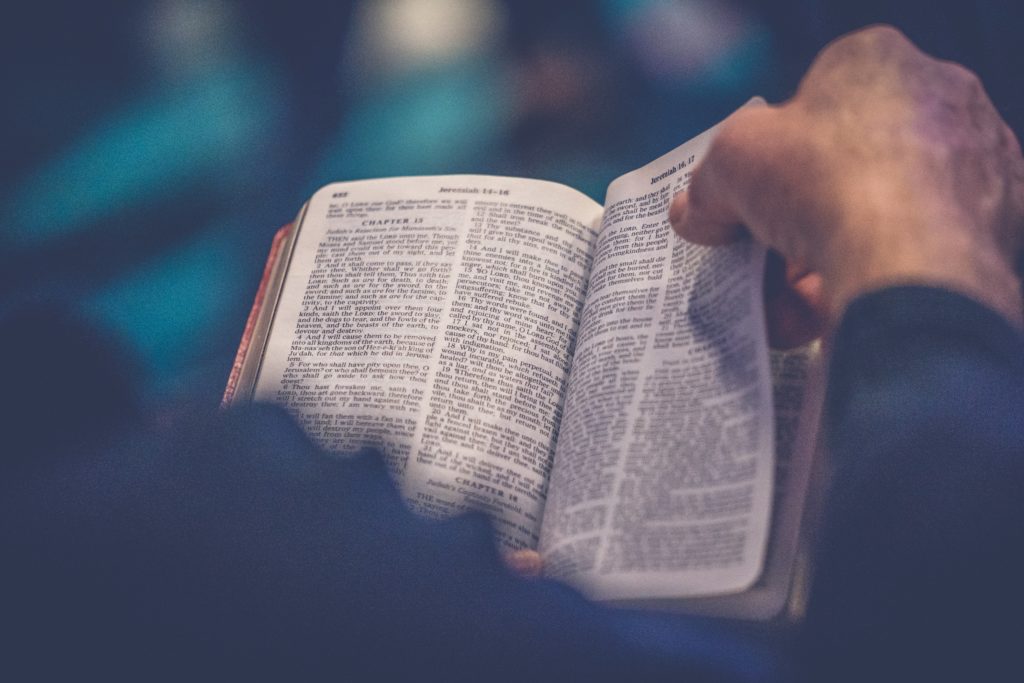
How Do I Make a Spiritual Communion?
Below are recommendations for how to make a ‘spiritual communion’ when unable to participate in the Holy Sacrifice of the Mass. The recommendations can be adapted based upon personal and family needs.
- Gather with others in your household and begin a time of prayer with the sign of the cross.
- Take time to read and reflect upon the readings from Sunday Mass. You can find the readings at usccb.org and a Sunday Gospel reflection on our YouTube channel. A link to the Saint Brigid Sunday Mass Order of Worship is provided in the youtube video comments section.
- Share prayer intentions quietly or alone.
- Pray the Lord’s Prayer.
- Pray one of the following prayers of spiritual communion (see below)
- Close with the sign of the cross.
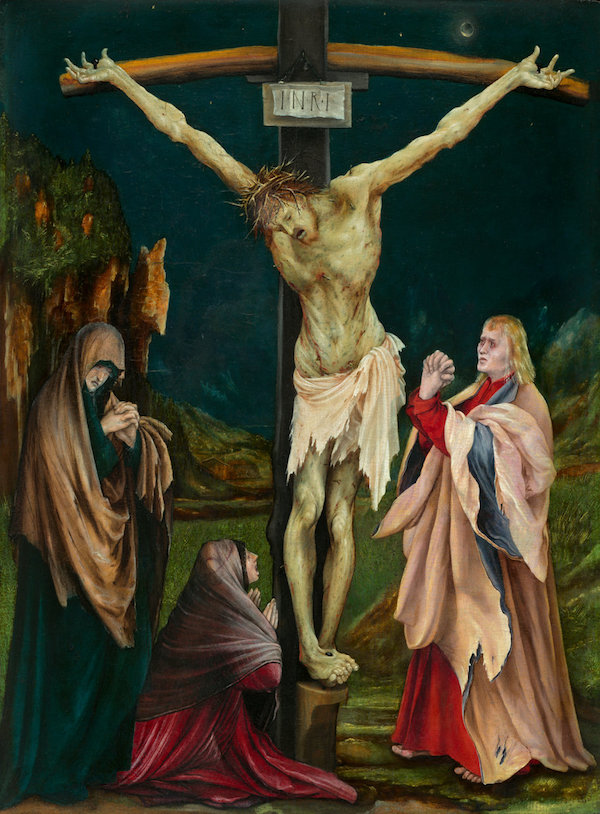
Prayer to the Most Holy Redeemer (Anima Christi)
Soul of Christ, sanctify me.
Body of Christ, save me.
Blood of Christ, embolden me.
Water from the side of Christ, wash me.
Passion of Christ, strengthen me.
O good Jesus, hear me.
Within thy wounds hide me.
Never permit me to be parted from you.
From the evil Enemy defend me.
In the hour of my death call me.
and bid me come to thee,
that with your saints I may praise thee
for age upon age.
Amen.
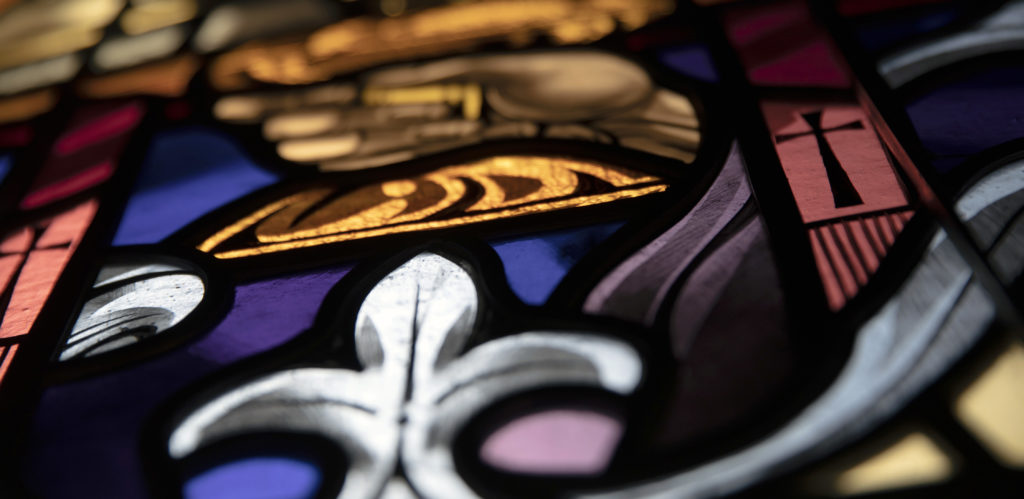
Prayer to our Lord Jesus Christ Crucified
Behold, O good and loving Jesus, that I cast myself on my knees before you and, with the greatest fervor of spirit, I pray and beseech you to instill into my heart ardent sentiments of faith, hope and charity, with true repentance for my sins and a most firm purpose of amendment. With deep affection and sorrow I ponder intimately and contemplate in my mind your five wounds, having before my eyes what the prophet David had already put in your mouth about yourself, O good Jesus: They have pierced my hands and my feet; they have numbered all my bones (Ps. 21: 17-18).
The above prayers can be found in the Manual of Indulgences for those who make “an act of spiritual communion” and are prayers of thanksgiving in the Roman Missal. The Manual of Indulgences indicates that a partial indulgence is granted to the faithful who recite one of these prayers.
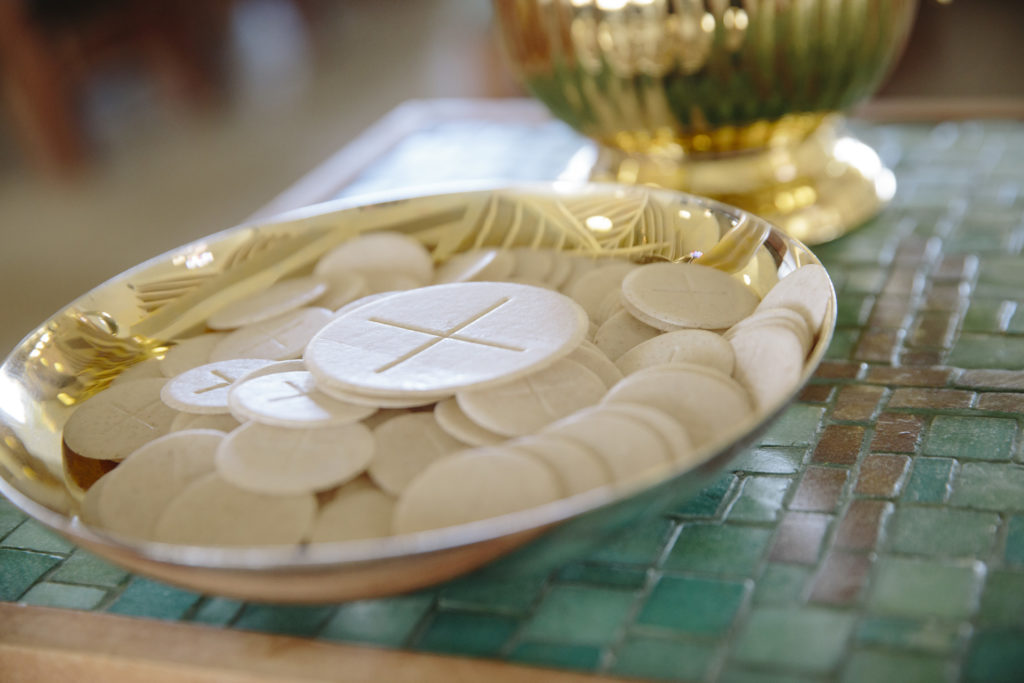
An Act of Spiritual Communion by St. Alphonsus Liguori
My Jesus, I believe that You are present in the Most Holy Sacrament.
I love You above all things, and I desire to receive You into my soul.
Since I cannot at this moment receive You sacramentally,
come at least spiritually into my heart.
I embrace You as if You were already there and unite myself wholly to You.
Never permit me to be separated from You.
Amen.
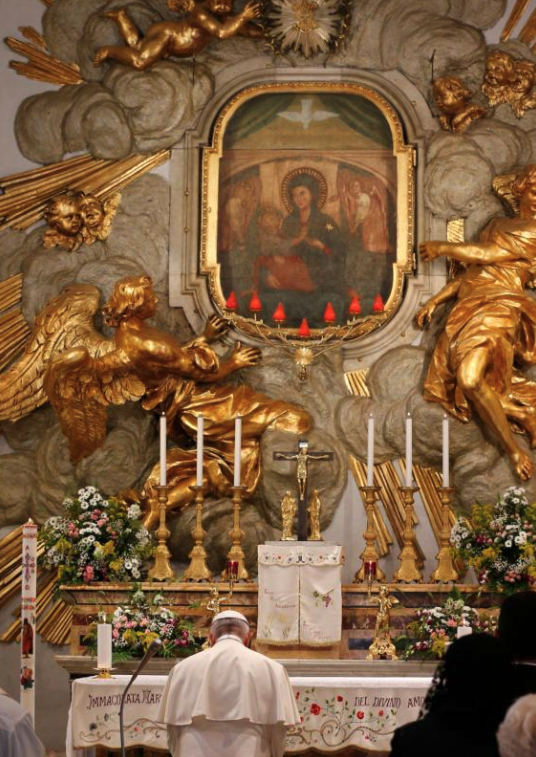
Pope Francis’s Prayer to Mary during Coronavirus Pandemic
O Mary, you always shine on our path as a sign of salvation and of hope. We entrust ourselves to you, Health of the Sick, who at the cross took part in Jesus’ pain, keeping your faith firm.
You, Salvation of Your People, know what we need, and we are sure you will provide so that, as in Cana of Galilee, we may return to joy and to feasting after this time of trial.
Help us, Mother of Divine Love, to conform to the will of the Father and to do as we are told by Jesus, who has taken upon himself our sufferings and carried our sorrows to lead us, through the cross, to the joy of the resurrection. Amen.
Under your protection, we seek refuge, Holy Mother of God. Do not disdain the entreaties of we who are in trial, but deliver us from every danger, O glorious and blessed Virgin. Amen.
(Adapted from Vatican News.)
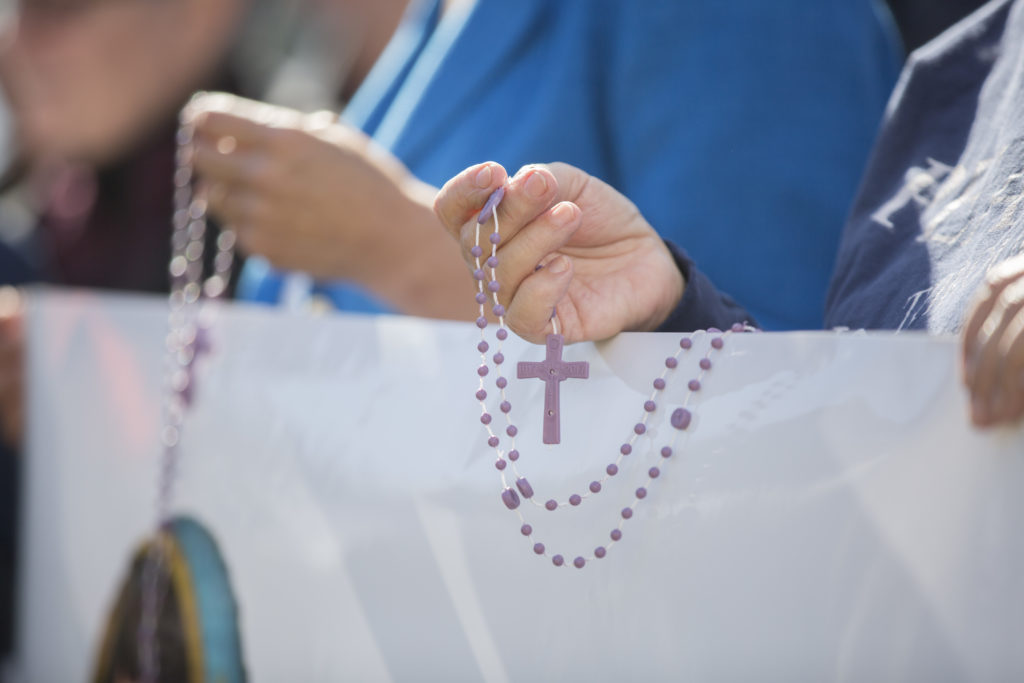
Reflections on the Importance of both Prayer and Action
“In our Christian life, prayer and action are always profoundly united. Prayer that does not lead to concrete action toward a brother who is poor, sick, in need of help, the brother in difficulty, is a sterile and incomplete prayer. But, in the same way, when in ecclesial service we are only concerned with doing, we give greater weight to things, functions, structures, and we forget the centrality of Christ; we do not set aside time for dialogue with him in prayer, we are in risk of serving ourselves and not God present in our needy brother.” (Pope Francis, Sunday Angelus, July 22, 2013)
“People who pray are not wasting their time, even though the situation appears desperate and seems to call for action alone. Piety does not undermine the struggle against the poverty of our neighbours, however extreme. In the example of Blessed Teresa of Calcutta we have a clear illustration of the fact that time devoted to God in prayer not only does not detract from effective and loving service to our neighbour but is in fact the inexhaustible source of that service.” (Pope Benedict XVI, Deus Caritas Est, no. 36)
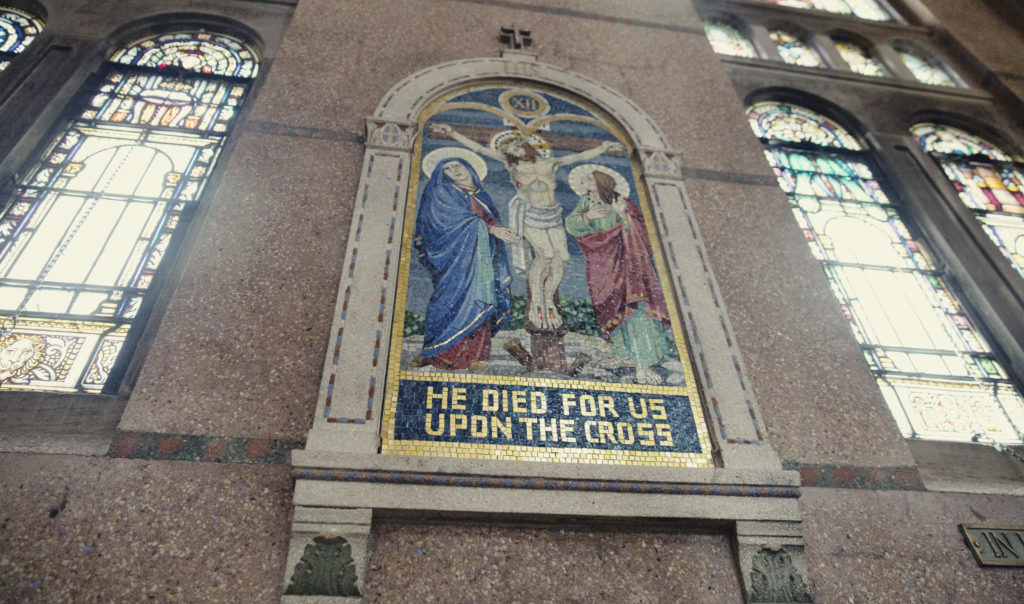
Stations of the Cross
The Stations of the Cross began as the practice of pious pilgrims to Jerusalem who would retrace the final journey of Jesus Christ to Calvary.
Later, for the many who wanted to pass along the same route, but could not make the trip to Jerusalem, a practice developed that eventually took the form of the fourteen stations currently found in almost every church.
This devotion can be practiced at home. Besides the Saint Brigid Stations of the Cross, the USCCB provides an audio version of the Stations of the Cross, as well as several different versions of the devotion that can be read in both English in Spanish.
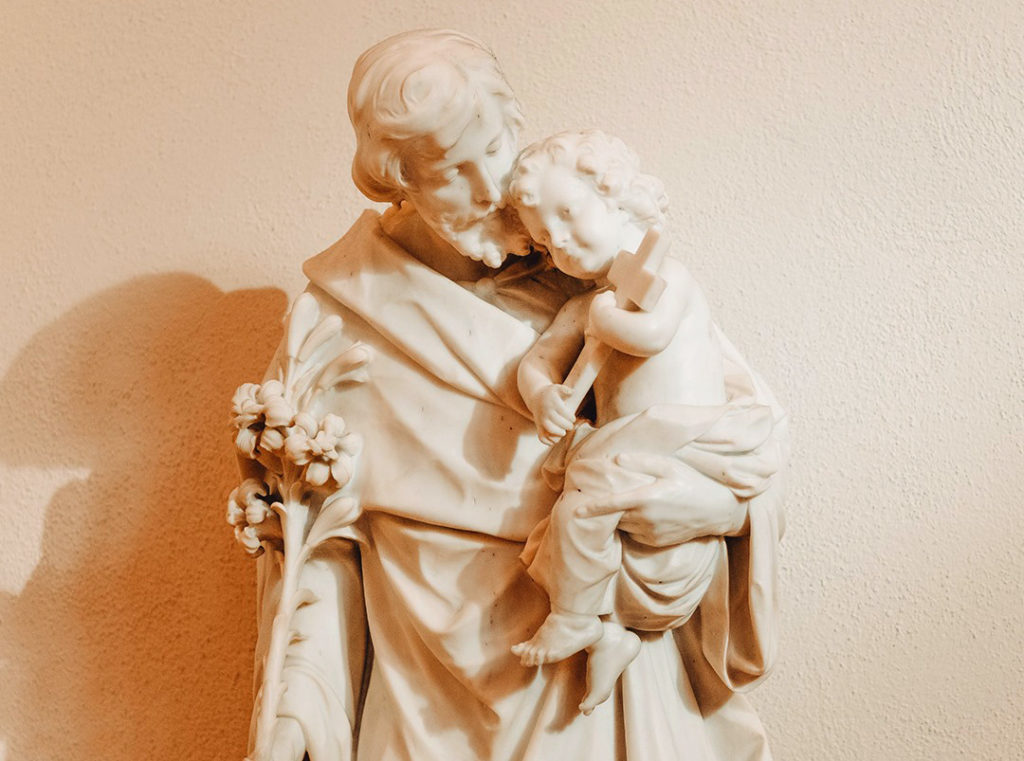
Plenary Indulgence
On the Solemnity of St. Joseph, the Apostolic Penitentiary granted a plenary indulgence to the faithful suffering from Coronavirus, family members of those suffering from Coronavirus, health care workers caring for the sick, and to all members of the faithful. Since some of the usual conditions for plenary indulgences (namely, sacramental Confession and reception of the Eucharist) cannot be fulfilled immediately, the desire by the faithful to fulfill the conditions, as soon as possible, suffices for the granting of the indulgence.

